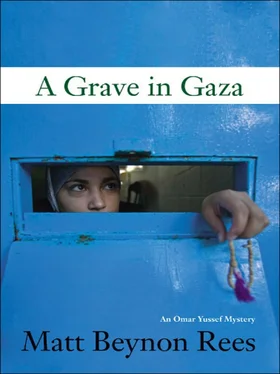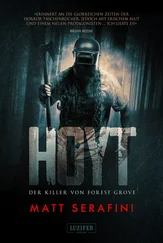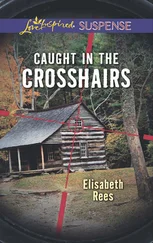Matt Rees - A grave in Gaza
Здесь есть возможность читать онлайн «Matt Rees - A grave in Gaza» весь текст электронной книги совершенно бесплатно (целиком полную версию без сокращений). В некоторых случаях можно слушать аудио, скачать через торрент в формате fb2 и присутствует краткое содержание. Жанр: Криминальный детектив, на английском языке. Описание произведения, (предисловие) а так же отзывы посетителей доступны на портале библиотеки ЛибКат.
- Название:A grave in Gaza
- Автор:
- Жанр:
- Год:неизвестен
- ISBN:нет данных
- Рейтинг книги:5 / 5. Голосов: 1
-
Избранное:Добавить в избранное
- Отзывы:
-
Ваша оценка:
- 100
- 1
- 2
- 3
- 4
- 5
A grave in Gaza: краткое содержание, описание и аннотация
Предлагаем к чтению аннотацию, описание, краткое содержание или предисловие (зависит от того, что написал сам автор книги «A grave in Gaza»). Если вы не нашли необходимую информацию о книге — напишите в комментариях, мы постараемся отыскать её.
A grave in Gaza — читать онлайн бесплатно полную книгу (весь текст) целиком
Ниже представлен текст книги, разбитый по страницам. Система сохранения места последней прочитанной страницы, позволяет с удобством читать онлайн бесплатно книгу «A grave in Gaza», без необходимости каждый раз заново искать на чём Вы остановились. Поставьте закладку, и сможете в любой момент перейти на страницу, на которой закончили чтение.
Интервал:
Закладка:
“Why? Why do I have to go?”
“How many dead bodies do you have to see before you develop a better sense of self-preservation? I think Doctor Najjar liked you, but not so much that he wants to see you naked on the dissecting table in his pathology lab.” Khamis Zeydan drew close. “My brother, go now.”
Omar Yussef climbed back into the jeep. As Sami started the car, Khamis Zeydan tucked his pistol into the holster in the back of his waistband and watched his old friend. When they reached the junction at the end of the Beach Road, Khamis Zeydan was a vague spot in the cloud of dust and the body of Eyad Masharawi had disappeared from view.
Sami turned south onto the Saladin Road toward Rafah. Omar Yussef imagined Salwa Masharawi watching the dust swirl through the olive grove in front of her house and listening to her children playing in the other rooms. He wondered if she had sensed her husband’s death and what he would tell her about the way Eyad died.
He thought guiltily of the Saladin Brigades leaflet he had left in Professor Adnan Maki’s office. If Maki had read the notes on the back, he might have connected it to Omar Yussef’s interest in Masharawi and the selling of university degrees. He might have passed that along to Masharawi’s captors. Omar Yussef slapped a fist into his palm. His own clumsy attempt to investigate may have killed Masharawi. But he couldn’t believe the security agents would murder a man over something as minor as accusations of corruption at the university.
Sami’s cellphone rang. He listened, spoke quietly, and hung up. “That was Khaled. Abu Jamal will see us in Rafah in the next few hours.”
The wind was hard against the car’s windows. Omar Yussef hadn’t had the chance to pick up a sweater at the hotel, after all. He shivered.
Chapter 26
Bent under backpacks twice the size of their torsos, streams of schoolchildren slouched home to the ragged tin farmhouses along the seashore near Rafah. In the dunes, shredded plastic sheeting flapped against the metal frames of greenhouses left behind by the Israelis when they evacuated their settlements. Sami shook his head. “It should be lovely down here. If only things were different.”
“I prefer the hills around Bethlehem,” Omar Yussef said. “The rocks and the sharp slopes and the sunrise over the mountains beyond the Dead Sea.”
“The sun rises here, too, Abu Ramiz.”
Omar Yussef gestured at the pale darkness of the dust storm. “If Allah wills it.”
The road veered inland away from the palm groves near the Egyptian border and dropped toward Rafah. The town lay like a pile of rocks strewn carelessly across the sand by a wrecking ball. The dark corrugated metal of the border fence slid past the town like a serpent, silent, muscular and venomous. The shot-up buildings on the edge of Rafah looked like the grin of a streetfighter, teeth punched away, broken and blackened.
They drove along the southern rim of the town to the Saladin Gate. Sami pulled the car into the shade of an awning outside a shuttered grocery. A boy of about three stood on the roof of the store, throwing tiny stones at Omar Yussef as he stepped out of the car. He wagged his finger at the boy. Another stone tapped the hood of the car. The boy’s chubby, tawny face was resentful and fierce and his legs were planted wide. He’s working on his arm for the battles to come, Omar Yussef thought. He breathed slowly and got back in the car to wait for Abu Jamal’s summons.
Sami toyed with his cellphone. The tapping of stones continued on the roof of the Jeep, a counterpoint to the constant impacts of the sand volleying out of the hot wind. Omar Yussef’s head dipped forward and he closed his eyes. When he opened them, it was to the ringing of Sami’s cell-phone and a sense that the light had dimmed. Sami listened and murmured agreement into the phone as he started the car’s engine. He hung up and took off along the town’s main street.
“Was I asleep?” Omar Yussef asked, yawning. His mouth was dry.
“For about three hours.”
“We’ve been waiting that long? Why didn’t you wake me?”
“You needed sleep, and I didn’t need company.” Sami peered into the dust. The street was almost empty. The town was hiding from the dirt in the air. The few pedestrians were sinister shadows in the dust storm. Ghostly fluorescent light shivered from the shopfronts.
Sami spotted a stationery shop on a corner of the main road. “That’s the place,” he said. He pulled into a sidestreet. A blue metal door opened onto a dark stairwell. Omar Yussef saw the vague shape of a man’s head and a hand beckoning to them. Sami leaned over, took the pistol out of his waistband and put it in the glove compartment.
“Won’t we need that?” Omar Yussef said.
“By the time we needed it, we’d already be dead.” Sami smiled. “Anyway, these guys would take the gun off me before they’d let me see Abu Jamal.”
In the stairwell, there was a handshake for each of them, but Omar Yussef’s eyes couldn’t adjust to the deeper darkness. The hand led him up a rough flight of stairs. The leather of his loafers made a sound like sanding wood on the bare concrete and he stumbled twice in the dark.
At the head of the stairs, they entered a long, narrow room. A pair of hands patted their waists and chests, checking for weapons. Three sofas were crammed in a horseshoe beneath a small window. A single fluorescent strip, lying on the arm of one sofa, provided the only light in the room. Omar Yussef narrowed his eyes and peered into the darkness. A lean, bearded man in his mid-thirties was performing the evening prayers in the corner farthest from the window. On either side of him, a noisy fan rushed air around the room, but it was stiflingly hot and almost as dusty as it had been outside. A rhythmic susuration of wind murmured through the gaps in the window frame.
They sat on the sofa opposite the fluorescent strip. The man who had greeted them at the door placed the light on a mahogany coffee table between the sofas. When he moved it, the icy glow illuminated his hands and face. They were the same broad farmer’s features Omar Yussef had noted in Bassam Odwan. The man’s high brow was alert, stiff with concentration. His eyes were black and watchful.
“You’re related to Bassam Odwan?” Omar Yussef asked.
“My brother,” he said, in a hoarse, dark voice.
“May Allah be merciful upon him. I met him briefly in the jail. I think he was calm in the face of death.”
“I don’t think calm is the right word.”
“What’s your name?”
“Attiah Odwan.”
“What would be the right word, Attiah?”
“Prepared. That would be the right word.”
The man in the corner completed the five prostrations of the Maghrib prayers, but didn’t stop. Omar Yussef counted two more repetitions of the motions-the standing and the kneeling, the moment of restful consideration and the bowing to the floor-that constituted a single prostration. The extra prayers signaled preparation for an imminent mission and, perhaps, death.
When the prayers were done, a woman, compelled to remain out of the visitors’ sight, passed a tray of coffee through the door and Attiah set it on the table. The man in the corner greeted them. His hand, when Omar Yussef shook it, was deformed, the bones broken and barely knitted together, the skin unnaturally smooth and hairless where it had been burned. Omar Yussef flinched.
“The work of an Israeli tank shell,” the man said. His voice was low and rasping. His deep, dark eyes were dry and bloodshot. Below them were thick rings the color and texture of cinnamon bark. His beard was smooth and shone black. He pulled a tissue from a box on the table and expectorated into it. He took a packet of throat lozenges from his pocket, slipped one into his mouth, and picked up his coffee cup.
Читать дальшеИнтервал:
Закладка:
Похожие книги на «A grave in Gaza»
Представляем Вашему вниманию похожие книги на «A grave in Gaza» списком для выбора. Мы отобрали схожую по названию и смыслу литературу в надежде предоставить читателям больше вариантов отыскать новые, интересные, ещё непрочитанные произведения.
Обсуждение, отзывы о книге «A grave in Gaza» и просто собственные мнения читателей. Оставьте ваши комментарии, напишите, что Вы думаете о произведении, его смысле или главных героях. Укажите что конкретно понравилось, а что нет, и почему Вы так считаете.












